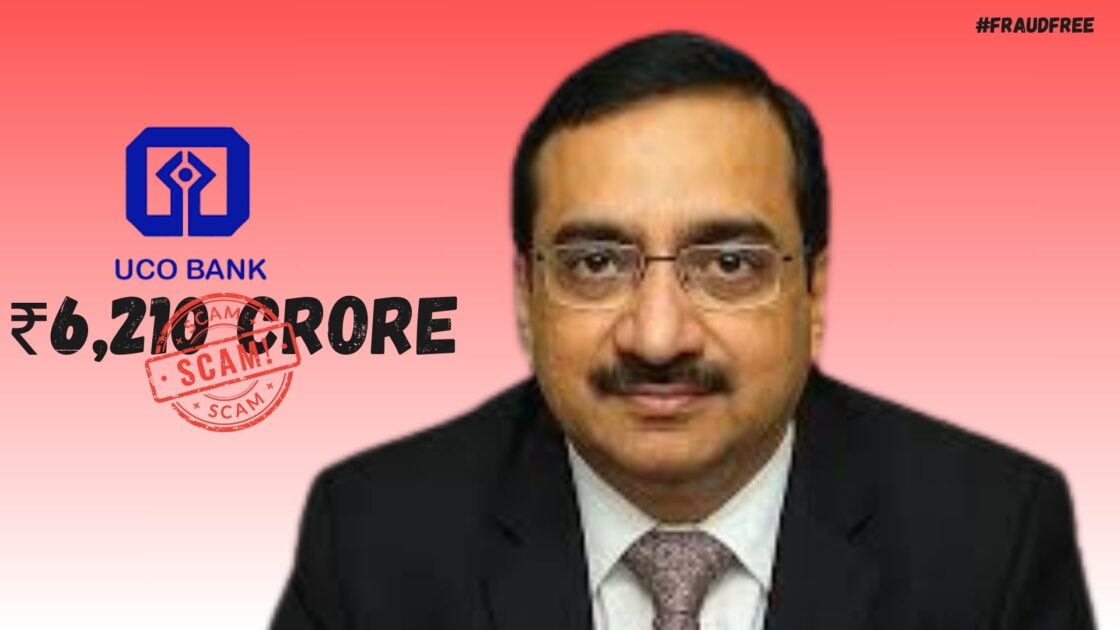It started, like most things in Indian banking scandals do, with a phone call.
Not from a whistleblower. Not from an investigative journalist.
But from a compliance officer inside a national bank, who noticed something that didn’t add up.
“CMD sahab, the exposure on Concast Steel is getting heavy. We might want to review the credit line again.”
Subodh Kumar Goel didn’t blink.
“Don’t worry. It’s a growing company. They’re good for it.”
But the truth? It wasn’t about growth. It was about greed. And Goel knew exactly what he was doing.
The Perfect Storm in Slow Motion
Subodh Kumar Goel wasn’t some small-time fraudster trying his luck. He was the Chairman and Managing Director of UCO Bank, a man who understood every policy, every compliance checkbox, every loophole in the system.
And he used it all.
The partner in crime? Sanjay Sureka, promoter of Concast Steel & Power Ltd. (CSPL), a company that looked legit on paper but, behind the scenes, was bleeding the bank dry.
Goel’s strategy was almost textbook:
Push through loan approvals to CSPL, bypass internal concerns, manipulate documentation, and later claim “due process” if questioned.
But it wasn’t just laziness or negligence; the money was being siphoned, washed, and then poured into shell companies, real estate, and personal assets.
“Bhai, iss baar toh pakde jayenge…”
When the Enforcement Directorate (ED) came knocking, it wasn’t sudden.
The trail had been warming for a while. Shell firms connected to Goel’s relatives had popped up in Kolkata and Noida.
Properties worth crores were bought in their names. And Concast Steel? It had already defaulted.
It was in May 2025 when the ED finally showed up at Goel’s plush residence in Delhi.
The officers walked in with files, laptops, and search warrants. Goel, reportedly calm, sat down and asked. “You really think I did all this myself?”
The ED didn’t answer. They didn’t need to.
The Anatomy of a ₹6,210 Crore Black Hole
The numbers are dizzying:
- ₹3,848 crore sanctioned as loans.
- ₹2,365 crore written off.
- ₹6,213 crore in total exposure.
All linked to CSPL and all under Goel’s watch.
Meanwhile, the CBI FIR and ED’s chargesheet outline a damning series of events: bank funds diverted through bogus purchases, money routed through fake companies, and properties purchased under false identities.
What’s worse? The approval process, one that typically takes months, was allegedly pushed through in weeks.
Even ₹75 crore worth of properties were traced directly to the laundered funds. Some of them were in Goel’s name. Others? His family members.
A System Caught Sleeping
If you’re wondering how this went unnoticed, you’re not alone.
How does a public bank lose over ₹6,000 crore under the nose of RBI auditors, board reviews, and multiple levels of scrutiny? It’s the same old answer: power, collusion, and complacency.
Internal auditors raised flags. Compliance teams whispered concerns. But when the man at the top is the one signing the loans, who’s going to raise their voice loud enough?
“I Have Parkinson’s,” He Pleaded
After his arrest, Goel attempted what many before him have — a medical bail plea.
He claimed Parkinson’s disease, submitted medical reports, and requested release on humanitarian grounds.
But the court wasn’t buying it. The scam was too big. The documentation is too deep. The impact is too wide.
Sanjay Sureka had already been arrested in December 2024, and over ₹510 crore worth of his assets were attached. Goel’s turn was just beginning.
What This Means for Indian Banking
Let’s step back for a second. This isn’t just about a rogue banker and a greedy businessman.
This scam is a reminder that India’s banking system, even in 2025, is still vulnerable at the top.
It tells us:
- Due diligence means little when senior officials are compromised.
- Oversight bodies still miss obvious red flags.
- And most importantly, fraud is rarely about loopholes; it’s about people deciding to exploit them.
Final Thoughts
There’s a strange silence in the banking corridors now. Whispers of “Did you hear about UCO Bank?” fade into paperwork and risk reviews. But the ₹6,210 crore hole is still very real.
Maybe the next compliance officer who notices something off will be heard.
Maybe the next Goel will think twice.
Or maybe — and this is the scariest part — this is just another name in a long list of banking scams we’ve come to normalize.







